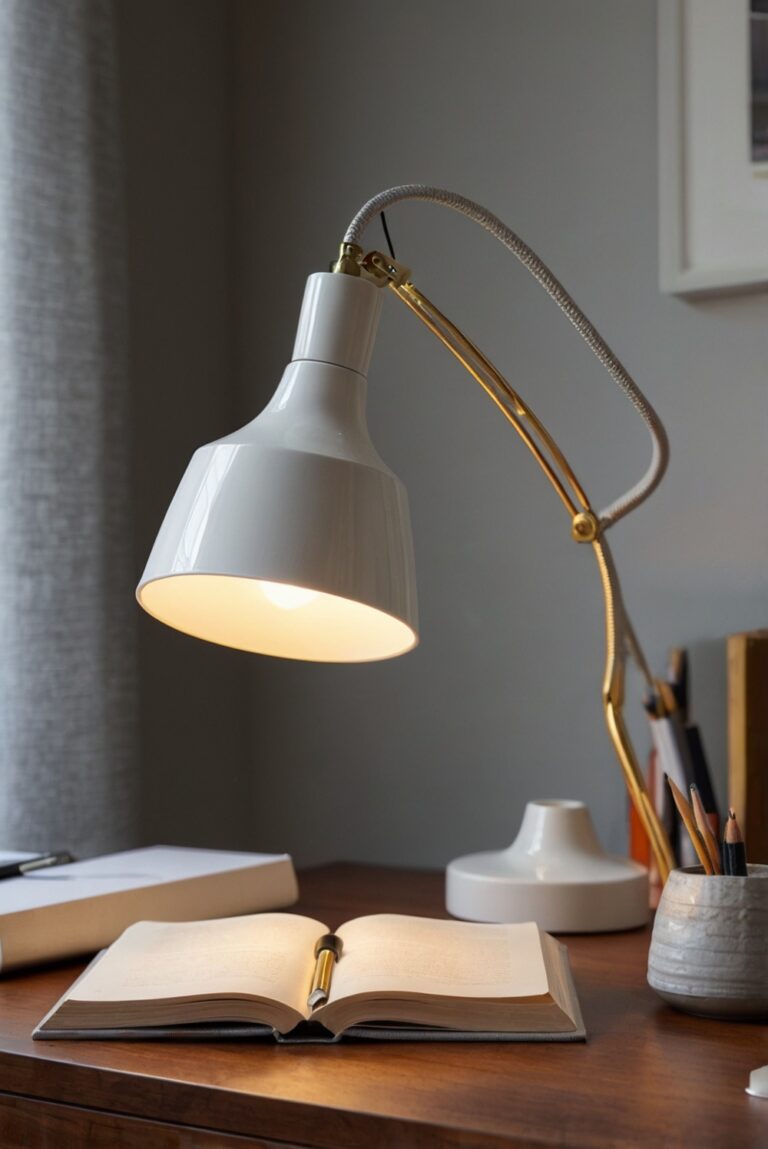Discover the advantages of integrating smart lighting systems into your home office routine. Elevate your interior design and productivity with advanced lighting technology.
Using smart lighting systems in a home office can bring numerous benefits. These systems allow for customized lighting settings, which can enhance productivity and reduce eye strain. They also offer energy efficiency through automated controls and scheduling. Additionally, smart lighting can create a comfortable and conducive work environment by adjusting brightness levels and color temperatures.
To incorporate smart lighting into your home office decor, consider the space planning and interior design to ensure optimal placement of light fixtures. Choose paint colors that complement the lighting scheme and enhance the overall ambiance. By integrating smart lighting systems into your home office, you can elevate the design aesthetic while improving functionality and comfort.
Enhanced Productivity:
Smart lighting systems in a home office can significantly enhance productivity. By allowing users to adjust the brightness and color temperature of the lights based on their preferences, smart lighting can create an optimal working environment. Studies have shown that lighting has a direct impact on mood and productivity, with natural light being the most beneficial. Smart lighting systems can simulate natural light patterns, helping to boost focus and energy levels throughout the day.
Energy Efficiency:
One of the key benefits of using smart lighting systems in a home office is energy efficiency. These systems are equipped with sensors that can detect when a room is unoccupied and automatically adjust the lighting levels or turn off lights to save energy. Additionally, smart lighting systems use LED bulbs, which are more energy-efficient than traditional incandescent bulbs, leading to lower electricity bills and reduced environmental impact.
Convenience and Control:
Smart lighting systems offer users convenience and control over their lighting settings. Through smartphone apps or voice commands, users can easily adjust the brightness, color, and even schedule the lighting to turn on or off at specific times. This level of control allows users to create custom lighting scenes for different tasks, such as working, reading, or relaxing, enhancing the overall comfort and functionality of the home office.
Improved Health and Well-being:
Another benefit of using smart lighting systems in a home office is the potential to improve health and well-being. Proper lighting can reduce eye strain and fatigue, making it easier to work for extended periods without discomfort. Smart lighting systems can also support the body’s natural circadian rhythm by adjusting the color temperature of the lights throughout the day, promoting better sleep quality and overall health.
Enhanced Security:
Smart lighting systems can also enhance the security of a home office. By integrating motion sensors with the lighting system, users can set up automated lighting routines that simulate occupancy when they are away, deterring potential intruders. This added layer of security can provide peace of mind for individuals who work from home or have valuable equipment in their office space.
In conclusion, incorporating smart lighting systems in a home office offers a wide range of benefits, including enhanced productivity, energy efficiency, convenience, improved health and well-being, and enhanced security. By utilizing these systems, individuals can create a more comfortable, efficient, and productive workspace that supports their work and overall well-being.
1. How can smart lighting systems benefit a home office?
Smart lighting systems offer numerous benefits for a home office. They can enhance productivity by providing adjustable lighting levels to suit different tasks throughout the day. Smart lighting can also help create a comfortable working environment by allowing users to control brightness and color temperature. Additionally, these systems can save energy and reduce utility costs by automatically adjusting lighting based on natural light levels and occupancy. Some smart lighting systems even offer features like scheduling and remote control, making it easy for users to customize their lighting preferences from anywhere.
2. What are the energy-saving advantages of using smart lighting systems in a home office?
Smart lighting systems are designed to be energy-efficient, offering significant savings compared to traditional lighting options. These systems use LED technology, which consumes less power while providing bright and consistent light. Additionally, smart lighting can be programmed to turn off automatically when not in use, reducing unnecessary energy consumption. Studies have shown that smart lighting systems can save up to 50% more energy compared to conventional lighting methods, making them a cost-effective and eco-friendly choice for home office environments.
3. How do smart lighting systems contribute to a healthier work environment?
Smart lighting systems play a crucial role in promoting a healthier work environment in a home office. By allowing users to adjust the color temperature and intensity of the light, these systems can mimic natural daylight, which has been linked to improved mood and productivity. Proper lighting can also reduce eye strain and fatigue, leading to a more comfortable and productive workspace. Some smart lighting systems even offer features like circadian lighting, which adjusts the light color throughout the day to align with the body’s natural rhythms, promoting better sleep patterns and overall well-being.
4. Can smart lighting systems enhance productivity in a home office setting?
Yes, smart lighting systems can significantly enhance productivity in a home office setting. By providing customizable lighting options, users can create an environment that is conducive to focused work and creativity. Bright, natural-looking light can help boost alertness and concentration, while softer, warmer light can promote relaxation and stress relief. Smart lighting systems can also be programmed to align with the body’s natural circadian rhythms, helping users maintain a consistent sleep-wake cycle and improve overall productivity. Studies have shown that proper lighting can have a positive impact on mood, energy levels, and cognitive performance, making smart lighting an essential tool for maximizing productivity in a home office.
5. How do smart lighting systems improve convenience and flexibility in a home office?
Smart lighting systems offer unparalleled convenience and flexibility for users in a home office setting. With features like remote control and scheduling, users can easily adjust their lighting preferences from anywhere, using a smartphone or voice commands. This level of control allows users to create personalized lighting settings for different tasks, moods, or times of day, enhancing comfort and productivity. Additionally, smart lighting systems can be integrated with other smart home devices, such as voice assistants or motion sensors, to create a seamless and intuitive user experience. Overall, smart lighting systems provide unmatched convenience and flexibility, making them an essential addition to any modern home office.







